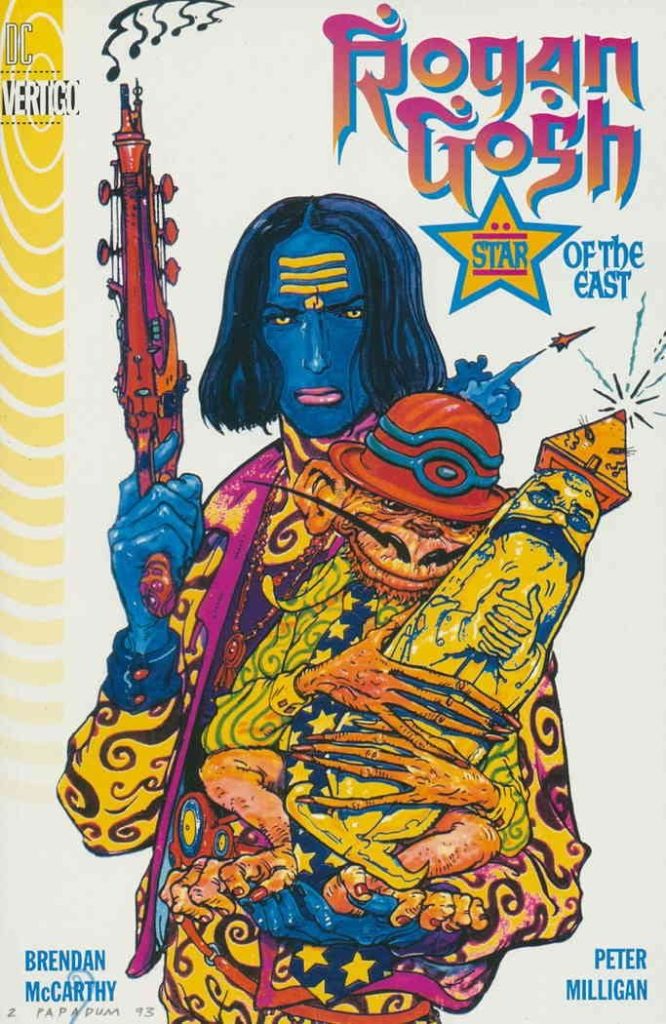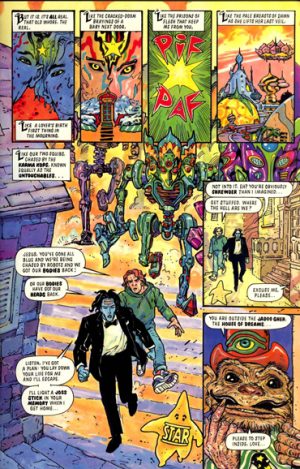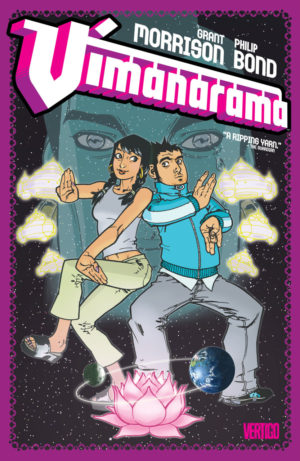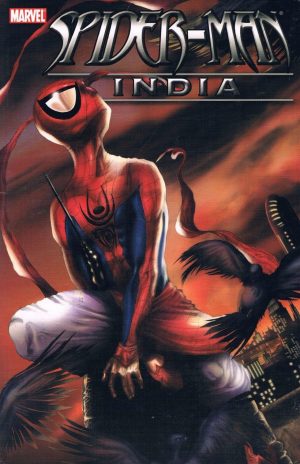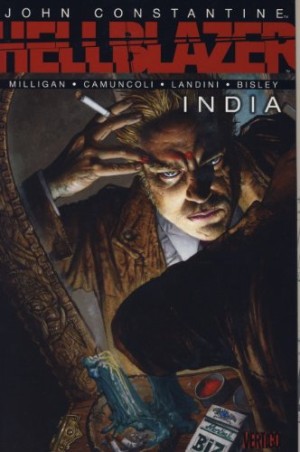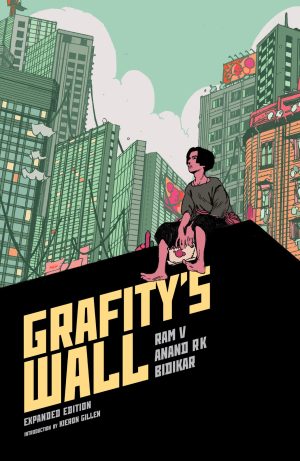Review by Win Wiacek
Rogan Gosh is a serial by Pete Milligan and Brendan McCarthy that first appeared in short-lived, controversial, cutting edge, experimental British comic magazine Revolver. Revolver’s brief was to make comics for people who had outgrown funny picture stories and adults who claimed to have never read them. It was supposed to be political, fashionable, contemporary and contentious, and it succeeded over and over again.
The jewel in the crown was a bizarre and beautiful, sardonically surreal saga incorporating English curry houses, karmic renewal and exploration, science fiction iconography, cultural commentary and (in)appropriation, ferociously irreverent satirical comedy, and – apparently – concealed creator autobiography. It referenced Indian philosophy and religions, British colonial history and modern urban street life in an onrushing miasma of visual and ideological concepts that blew the mind and generated outrageous belly laughs. There were loads of guns and rockets and tons of sex too.
Post-modern psychedelia is a term applied to Rogan Gosh, evolving from channelled childhood experiences of two white art school kids who grew up amidst the burgeoning fallout of the Desi Diaspora. In the 1960s and 1970s families from Bangladesh, India and Pakistan migrated to Britain, bringing new thought, music, fashions, scents and especially food to broaden and enrich an evolving multiculture. Proud products of such an environment Peter Milligan and co-plotter/illustrator Brendan McCarthy planned to deliver a kind of “Bollywood Blade Runner”, but the story sort of got away from them.
It feels like a cop-out and total dereliction of duty, but it’s none the less true that some graphic novels simply defy categorisation, defeat the reviewers’ dark arts and just have to be read, experienced and judged on a personal basis. However, if you want a single paragraph synopsis, try:
The universe exists on many levels and at all times. In Raj-era India Rudyard Kipling has shamed himself with a native houseboy and roams the streets of Lahore, seeking a holy man to save his sanity and reputation by putting him in touch with the fabled Karmanauts. His quest succeeds and the author is – via drugs and magic and ancient wisdom – elevated to a state where he witnesses a future where laddish London oaf Dean Cripps escapes stroppy girlfriend Mary Jane to go for a curry at the magnificent Star of the East in Stoke Newington. When Dean feels a frisson of connection with beautiful waiter Raju Dhawan, the energy unleashes time-travelling wonder warrior Rogan Gosh just in time to defend enlightenment and all realities from the clandestine attacks of destructive Kali and her malign vampiric agent the Soma Swami…
It all gets a bit strange after that, what with audacious experimental love, devastation and recreation, Karma Kops, and that pest monkey god Hanuman, but rest assured that by the end, what you presume to be the regulation natural universe is back near where it belongs.
Although the story and events might bewilder, what is beyond question is McCarthy’s astounding art. He utilises a blend of pen, paint and early digital technology to create a lush and vibrant homage to the startlingly bright colours of the subcontinent and plush décor of favourite London curry houses and tapping the wellsprings of a fevered and sublimely seasoned imagination to beguile the eyes.
Hard to find in its original form, the entire trip is reprinted in 2013 anthology The Best of Milligan & McCarthy beside lots of other great stuff, and that collection is also available in digital format. Your destiny awaits, you only have to choose to embrace it.
